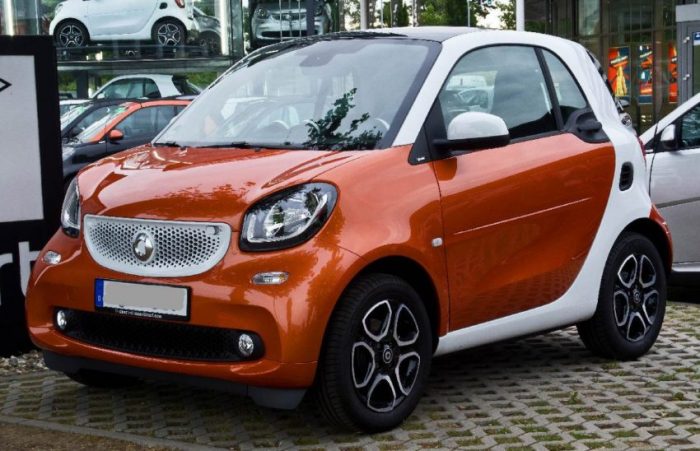How Smart Homes Are Integrating Blockchain Technology is transforming the way we interact with our living spaces. As smart homes continue to gain traction, blending convenience with innovation, the potential of blockchain technology emerges as a game changer in this arena. By ensuring enhanced security, decentralization, and streamlined automation, blockchain is poised to revolutionize smart home systems, making them not just smarter but also safer and more efficient.
Smart homes are rapidly evolving, incorporating devices and systems that communicate seamlessly to enhance our daily lives. Meanwhile, blockchain, a decentralized ledger technology, offers core features such as security, transparency, and data integrity. The integration of these two technologies promises to address existing vulnerabilities while providing users with greater control over their environments.
Introduction to Smart Homes and Blockchain Technology
The rise of smart homes is transforming the way we interact with our living spaces. As technology advances, homeowners are increasingly embracing smart devices that enhance convenience, security, and energy efficiency. Smart homes involve a network of connected devices that communicate with each other, allowing users to control various aspects of their homes remotely. This growing trend aligns with the emergence of blockchain technology, which is redefining security and data management in numerous sectors.
Blockchain technology, at its core, is a decentralized digital ledger that securely records transactions across multiple computers. Its key features include transparency, immutability, and security. By integrating blockchain into smart home systems, homeowners can benefit from enhanced security, streamlined operations, and improved data privacy, making their homes not just smarter, but also safer.
How Blockchain Enhances Security in Smart Homes
Traditional smart home systems face numerous security vulnerabilities. From hacking to unauthorized access, these systems can be exploited, leading to potential breaches in privacy and safety. Blockchain technology can provide enhanced security measures by ensuring that data is decentralized and encrypted, making it significantly harder for malicious entities to manipulate or access sensitive information.
Examples of smart home devices that benefit from blockchain security include smart locks and surveillance cameras. By utilizing blockchain, these devices can verify identities in a secure manner, ensuring that only authorized users can access or control them. This significantly reduces the risk of unauthorized entry or data breaches.
Decentralization and Data Ownership
Data ownership is a critical issue in smart home technology. Many smart devices collect vast amounts of personal data, leading to concerns over privacy and security. Blockchain decentralizes data storage and management, allowing users to maintain control over their personal information. With blockchain, data is not stored in a single location, reducing the risk of hacking and unauthorized access.
Users can manage their personal data through blockchain-powered applications, ensuring that only they have access to their information. This level of control empowers individuals and enhances their privacy, making it a compelling advantage of blockchain integration in smart homes.
Smart Contracts in Home Automation
Smart contracts are self-executing contracts with the terms of the agreement directly written into code. In the context of smart homes, they play a crucial role in automating various processes. For instance, they can facilitate transactions related to utility payments, ensuring that bills are paid automatically when certain conditions are met, such as usage thresholds.
In addition, smart contracts can streamline the process of renting or leasing properties by automating payment schedules and agreements, reducing the need for intermediaries and increasing efficiency in real estate transactions.
Energy Management and Blockchain

Blockchain technology is revolutionizing energy management in smart homes. By enabling efficient energy management systems, homeowners can monitor and control their energy consumption more effectively. Blockchain facilitates peer-to-peer energy trading, allowing homeowners to buy and sell excess energy produced by solar panels or other renewable sources directly with each other.
Case studies have shown that smart homes utilizing blockchain for energy efficiency have achieved significant cost savings and reduced carbon footprints. For example, a residential community employing blockchain for energy trading reported a 20% reduction in energy costs, showcasing the potential of this innovative technology.
Privacy Implications of Blockchain in Smart Homes, How Smart Homes Are Integrating Blockchain Technology
With the convenience of smart homes comes the challenge of privacy. Data collection in smart homes raises significant privacy concerns, as users often unknowingly share sensitive information. Blockchain can enhance privacy for users by providing a secure framework for data management, ensuring that personal information remains confidential.
The implications of privacy regulations, such as GDPR, further highlight the importance of blockchain technology in smart homes. By aligning with these regulations, blockchain can provide users with peace of mind knowing that their data is protected and managed according to legal standards.
Future Trends in Smart Homes and Blockchain Integration

The integration of smart homes and blockchain technology is poised to transform the future of residential living. Upcoming trends include the development of advanced energy management systems powered by blockchain, leading to greater sustainability and cost-effectiveness. Innovations such as automated maintenance reminders and enhanced user interfaces are also on the horizon, all driven by the capabilities of blockchain.
Predictions for the next decade suggest that smart homes will become increasingly autonomous, leveraging blockchain to facilitate real-time data analysis and decision-making. As technology continues to evolve, smart homes will not only become more efficient but also more attuned to the needs and preferences of their occupants.
Challenges and Limitations of Integration

Despite the promising potential of integrating blockchain with smart home technologies, several challenges remain. One major hurdle is the scalability of blockchain solutions, as current systems may struggle to handle the vast amounts of data generated by numerous smart devices. Additionally, the complexity of blockchain technology can create barriers to widespread adoption among mainstream consumers.
Moreover, the limitations of blockchain in terms of transaction speed and energy consumption pose challenges for real-time applications in smart homes. Potential solutions include the development of faster consensus algorithms and hybrid models that combine blockchain with traditional database systems, ensuring that smart homes can fully leverage the benefits of this innovative technology.
Final Review: How Smart Homes Are Integrating Blockchain Technology
In conclusion, the integration of blockchain technology into smart homes is set to redefine how we perceive automation, security, and energy management. As we explore future trends and innovations, it’s clear that this synergy holds immense potential not only for improving user experience but also for reinforcing privacy and data ownership. While challenges remain, the journey towards smarter, more secure homes is just beginning, and the possibilities are truly exciting.